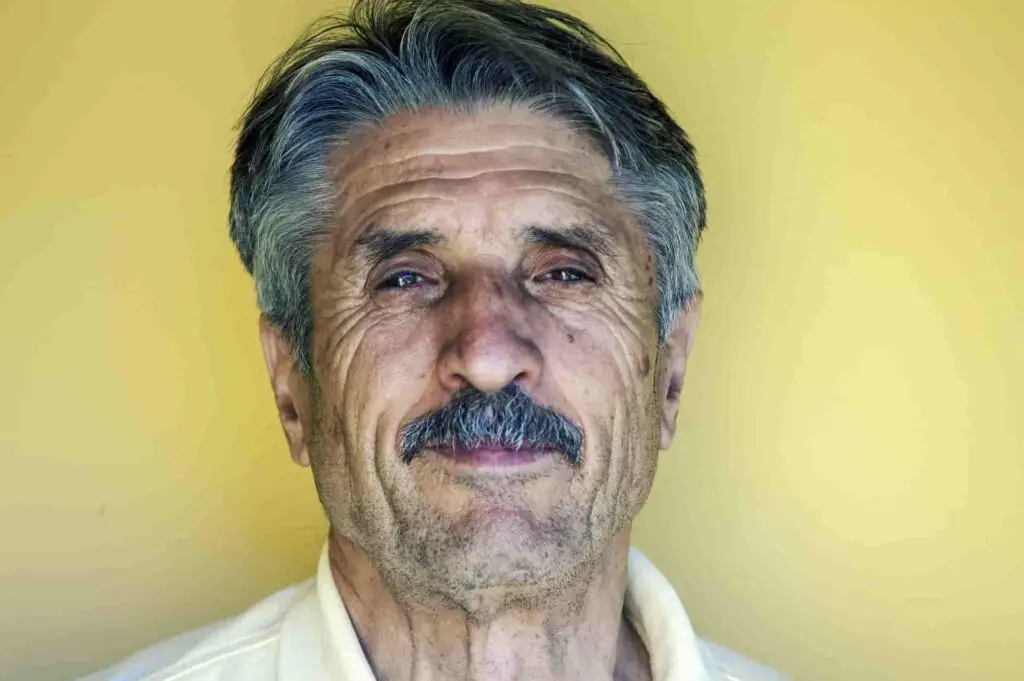Table of Contents
Table of Contents
Table of Contents
How to Make Bones Stronger for Seniors

As we age, maintaining strong and healthy bones becomes increasingly important. How to make bones stronger is a question many seniors ask as they look to stay active and independent. With the right approach, including nutrition, exercise, and lifestyle adjustments, you can effectively improve your bone strength and support overall health.
Why Bone Health Matters in Aging

Bone density naturally decreases with age, leading to a higher risk of fractures and conditions like osteoporosis. Building and maintaining strong bones is crucial for:
-
Preventing fractures: Fragile bones are more prone to breaks.
-
Improving mobility: Strong bones support better posture and movement.
-
Enhancing quality of life: Fewer injuries mean a more active and fulfilling lifestyle.
Understanding the Basics of Bone Strength
Bones are living tissues that constantly regenerate. The process of breaking down old bone and forming new bone slows down with age, making it essential to focus on building bone strength through diet and activity. Early interventions can greatly reduce the risk of complications and improve overall well-being.
The health of your bones is influenced by factors such as genetics, diet, physical activity, and lifestyle habits. By understanding these factors, you can take steps to protect and strengthen your skeletal system as you age.
Key Nutrients for Strong Bones

Proper nutrition plays a pivotal role in maintaining bone health. Below are some essential nutrients that build bone strength:
1. Calcium
Calcium is the building block of bones. Without adequate calcium intake, bones become weak and brittle.
-
Daily recommendation: 1,200 mg for seniors.
-
Foods rich in calcium:
-
Dairy products (milk, yogurt, cheese).
-
Leafy greens (kale, spinach).
-
Fortified plant-based milks.
-
For those who are lactose intolerant, there are plenty of alternatives, such as fortified almond milk or calcium-enriched orange juice. Regularly incorporating these foods into your diet can significantly contribute to bone strength.
2. Vitamin D
Vitamin D helps your body absorb calcium effectively. Without it, even high calcium intake may not benefit your bones as much.
-
Sources:
-
Sunlight (15-20 minutes daily exposure).
-
Foods: Fatty fish (salmon, mackerel), egg yolks.
-
Supplements: Look for options like Bioglan Super Strength Calcium Bone Builder for added support.
-
Vitamin D deficiency is common in older adults, particularly in regions with limited sunlight. Speak to your doctor about regular vitamin D testing to ensure your levels are sufficient.
3. Protein
Protein supports the collagen framework in bones, which helps them stay flexible and resistant to fractures.
-
Sources:
-
Lean meats.
-
Beans and legumes.
-
Dairy products.
-
A diet rich in protein also helps maintain muscle mass, which is important for overall mobility and fall prevention in seniors.
4. Magnesium and Vitamin K
-
Magnesium: Found in nuts, seeds, and whole grains, magnesium supports bone mineralization.
-
Vitamin K: Found in broccoli, spinach, and green beans, it plays a role in bone metabolism and helps regulate calcium.
Including a variety of these nutrients ensures that your bones receive comprehensive support.
Lifestyle Tips to Strengthen Bones

Aside from nutrition, making lifestyle changes can significantly impact your bone health. Below are some practical tips on how to make bones stronger:
1. Engage in Weight-Bearing Exercises
Weight-bearing and resistance exercises help stimulate bone growth. Some effective activities include:
-
Walking or jogging.
-
Strength training (using resistance bands or weights).
-
Yoga or Pilates for balance and flexibility.
These exercises improve bone density and also enhance muscle strength, which reduces the risk of falls. Start with light exercises and gradually increase intensity under the guidance of a fitness professional.
2. Avoid Smoking and Limit Alcohol
Smoking and excessive alcohol consumption negatively affect bone density. Nicotine interferes with calcium absorption, while alcohol can disrupt the balance of nutrients in the body. Quitting smoking and limiting alcohol intake can significantly benefit your bones.
3. Monitor Your Bone Health
Regular check-ups with your healthcare provider can help you track your bone density and take preventive measures if needed. Tests like a DEXA scan provide detailed insights into your bone health. Early detection of bone loss can lead to timely interventions.
4. Maintain a Healthy Weight
Being underweight can increase the risk of bone loss and fractures, while being overweight may put extra stress on your bones. Aim for a balanced weight through proper diet and exercise.
Exercises for Building Bone Density

Incorporating exercise into your routine is one of the best ways to strengthen bones. Below is a list of exercises tailored for seniors:
Weight-Bearing Activities
These exercises force you to work against gravity, promoting stronger bones:
-
Brisk walking: 30 minutes daily.
-
Dancing: Fun and effective for bone health.
-
Stair climbing: Builds leg strength and bone density.
Strength Training
Using resistance helps in building bone density:
-
Use light weights or resistance bands.
-
Focus on major muscle groups (legs, back, arms).
-
Perform 2-3 sessions weekly.
Strength training not only improves bone density but also helps maintain muscle mass, which supports joint stability and overall mobility.
Balance and Flexibility Training
-
Yoga: Improves posture and reduces fall risks.
-
Tai Chi: Enhances balance and coordination.
Activities that improve balance are especially important for seniors, as they reduce the likelihood of falls that could result in fractures.
Foods That Build Bone Strength

A nutrient-dense diet is vital for improving bone strength. Here is a quick table of foods that build bone strength:
| Nutrient | Food Sources |
|---|---|
| Calcium | Milk, cheese, kale, fortified cereals |
| Vitamin D | Salmon, fortified milk, egg yolks |
| Magnesium | Nuts, seeds, whole grains |
| Vitamin K | Broccoli, spinach, green beans |
Including these foods in your daily meals can provide the essential nutrients your bones need. Additionally, combining calcium-rich foods with sources of vitamin D enhances absorption and effectiveness.
Supplements for Bone Health

While diet is the best way to get nutrients, supplements can fill any gaps. Popular options include:
Cal Apatite Bone Builder Extra Strength: Known for its high-quality calcium and magnesium.
Metagenics Cal Apatite Bone Builder Extra Strength: A trusted brand for supporting bone density.
Always consult your healthcare provider before starting any supplement regimen. Supplements are particularly helpful for seniors who have difficulty meeting their nutrient needs through diet alone.
What Builds Strong Bones Over Time?

Consistency is key. To ensure long-term bone health:
Adopt a balanced diet: Focus on calcium, vitamin D, and protein-rich foods.
Exercise regularly: Aim for a mix of weight-bearing, strength, and flexibility exercises.
Avoid harmful habits: Quit smoking and moderate alcohol intake.
Stay proactive: Regular check-ups and early interventions prevent severe bone issues.
A proactive approach to bone health can significantly reduce the risk of osteoporosis and fractures. Encourage family members and caregivers to support healthy habits, creating a positive environment for maintaining bone strength.
Conclusion

Knowing how to make bones stronger is essential for seniors who want to maintain independence and vitality. By focusing on proper nutrition, engaging in regular exercise, and adopting healthy habits, you can significantly improve your bone health. Small changes, such as including nutrient-rich foods and staying active, lead to substantial long-term benefits.
For more detailed information, check out trusted resources like National Osteoporosis Foundation or consult your healthcare provider. Remember, it’s never too late to start prioritizing your bone health for a stronger, healthier future.


